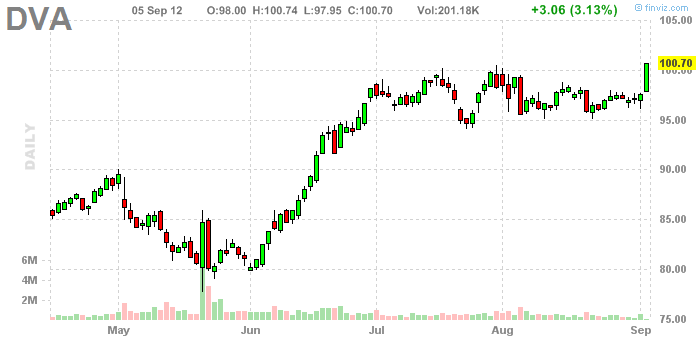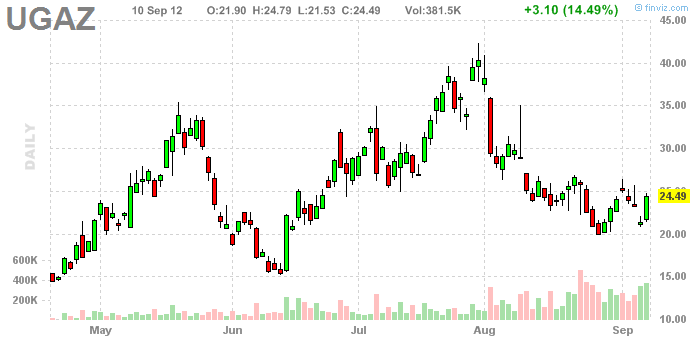miércoles, 31 de octubre de 2012
Forex Hotel industry looks for deal pace to pick up
Signals Five Sub-Penny Charts To Watch
With the year 67% over I have five charts to watch. I think all five will at some point post an over 100% gain from their current prices. The stocks are UYMG at $.001, ERBB at $.0021, STKO at $.001, ELRA at $.0012 and MCVE at $.03.
lunes, 29 de octubre de 2012
Signals Hotel industry looks for deal pace to pick up
sábado, 27 de octubre de 2012
Earn ISIS swing trade setup.
ISIS is breaking out . Good swing trading setup for 8 to 20% profit potential.
miércoles, 24 de octubre de 2012
Oil Breadth is improving
martes, 23 de octubre de 2012
Signals Europe downgrade fears make Treasurys a hot buy
lunes, 22 de octubre de 2012
Forex All eyes on Fed
Sometime the first reaction to the Fed is a fake out. As most would have seen there are number of studies that show Fed day to be positive day.
domingo, 21 de octubre de 2012
Forex BBDA hit $.0199 From $.0004 Alert
The stock fell after hitting $.0199 but recovered its losses and closed higher today. Strong interest remains in this stock that had almost no interest when I alerted it at $.0003/.0004.
jueves, 18 de octubre de 2012
Forex SANT - Stock Waking Up Soon?
This is a stock I gave to my subscribers as a chart to watch. The stock sits at lows with very little interest on both sides. The buyers are waiting for cheaper prices and the sellers looks to have finished their jobs for now.
The company continues to update the investing public about their operations and I think the stock could see a recovery of some of its losses this year. A move from today's $.004 price to over $.01 is what I think will happen in the short term.
Add SANT to your watchlist.
RESTON, VA, Aug 22, 2012 (MARKETWIRE via COMTEX) -- Santeon Group, Inc. (OTCBB:
martes, 16 de octubre de 2012
lunes, 15 de octubre de 2012
Oil Quest for the golden cross
domingo, 14 de octubre de 2012
Forex Swing trade idea: RYL
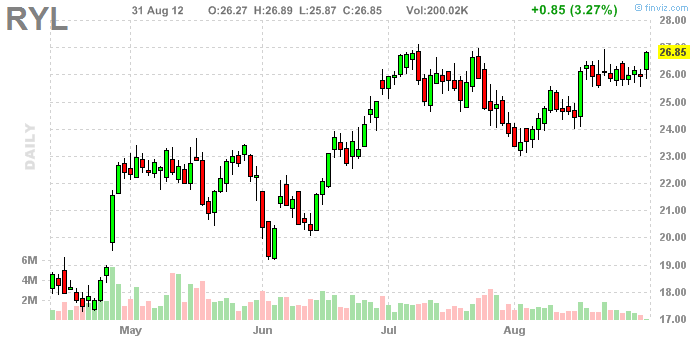
sábado, 13 de octubre de 2012
Earn Germany wants Greece to give up budget control
sábado, 22 de septiembre de 2012
Earn Five Sub-Penny Charts To Watch
With the year 67% over I have five charts to watch. I think all five will at some point post an over 100% gain from their current prices. The stocks are UYMG at $.001, ERBB at $.0021, STKO at $.001, ELRA at $.0012 and MCVE at $.03.
martes, 18 de septiembre de 2012
Earn AAPL was story of the day
Now all eyes are on Fed and that will be next big catalyst for the market.
On the ETF front one of the ETF worth looking at is UGAZ . It is trying to bounce back after a pullback. The natural gas futures were up 5% yesterday. If it gets going it might take out previous high near 40.
martes, 11 de septiembre de 2012
Earn BBDA Gearing For Third Leg Higher?
I have successfully called each of BBDA's rallies this year. First the rally from $.0004 to over $.004, which I alerted my subscribers to before the stock moved, when the stock was virtually dormant and trading only $5,000 to $10,000 a day at most compared to the $500,000+ its has been seeing on this latest rally. The second from $.0029 to $.0199. Both ended up being very profitable. Had you bought at $.0004 (there were millions upon millions of shares for sale when I alerted it at $.0004) and sold at the recent high of $.0199 you are looking at a possible $400 into $19,900 return.
Right now I think BBDA is gearing up for its next leg higher, a move that will take the stock over 100% higher from current levels. The short term chart is showing a cup and handle formation which is bullish. Also note that any bouts of selling only sends the stock down temporarily. The uptrend is not done yet.
BBDA's most recent news:
STATESVILLE, N.C., Sept. 6, 2012 /PRNewswire via COMTEX/ -- Bebida Beverage Company (OTC markets:
Earn Lot of good setups
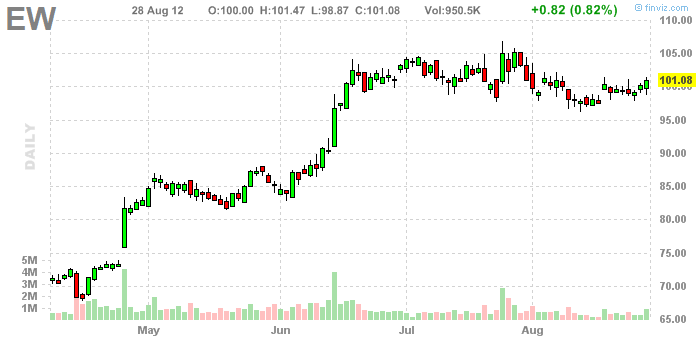
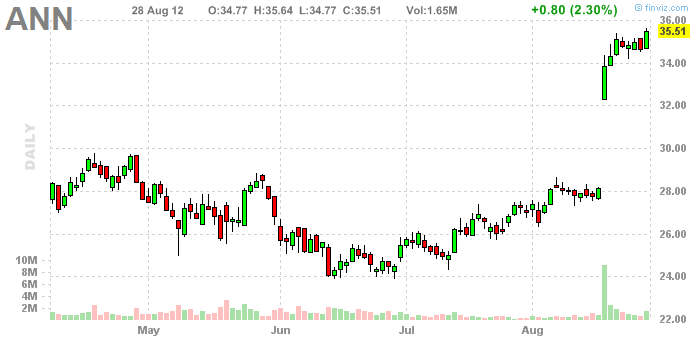
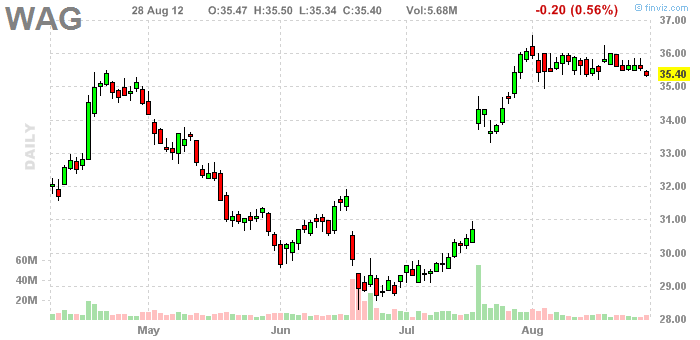
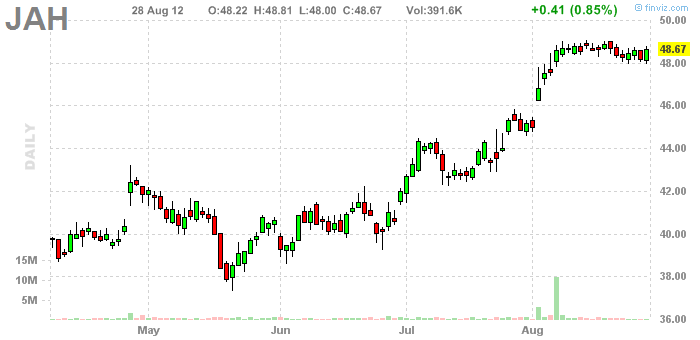
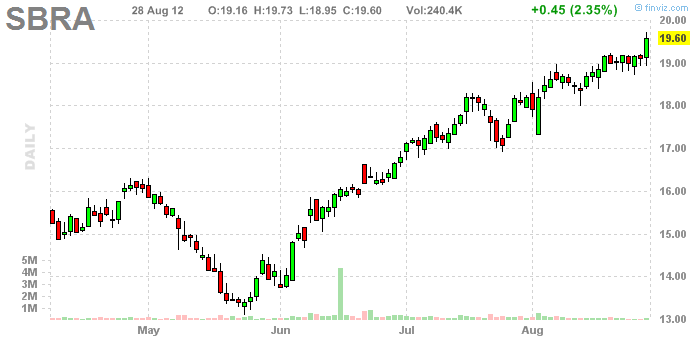
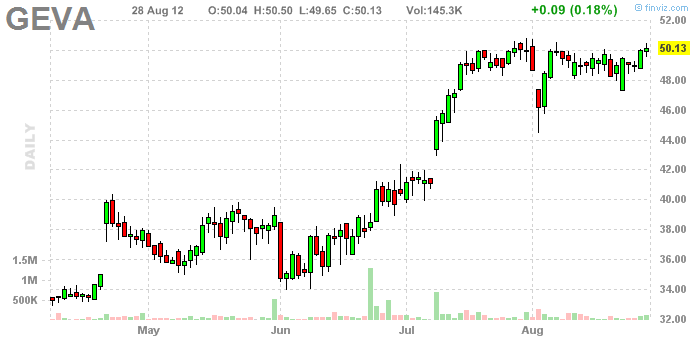
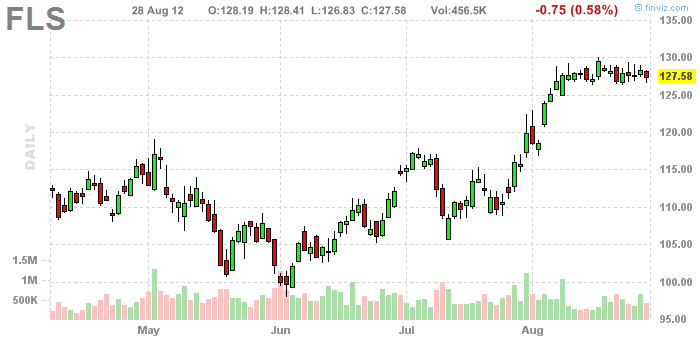
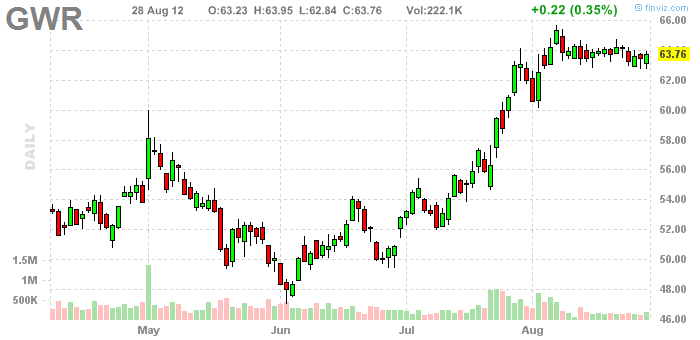
lunes, 10 de septiembre de 2012
Oil For Europe, Few Options in a Vicious Cycle of Debt
Oil Rate on 30-year mortgage drops to record 3.89 pct.
Newly built luxury townhomes are offered for sale in Woodland Hills, Calif. Tuesday, Jan. 10, 2012. Fixed mortgage rates hit yet another record low on the second week of the new year. But the cheap rates are expected to do little to boost the depressed housing market. (AP Photo/Damian Dovarganes) Newly built luxury townhomes are offered for sale in Woodland Hills, Calif. Tuesday, Jan. 10, 2012. Fixed mortgage rates hit yet another record low on the second week of the new year. But the cheap rates are expected to do little to boost the depressed housing market. (AP Photo/Damian Dovarganes) WASHINGTON (AP) -- Fixed mortgage rates fell once again to a record low, offering a great opportunity for those who can afford to buy or refinance homes. But few are able to take advantage of the historic rates. Freddie Mac said Thursday the average rate on the 30-year fixed mortgage fell to 3.89 percent. That's below the previous record of 3.91 percent reached three weeks ago. Records for mortgage rates date back to the 1950s. The average on the 15-year fixed mortgage ticked down to 3.16 percent. That's down from a record 3.21 percent three weeks ago. Mortgage rates are lower because they track the yield on the 10-year Treasury note, which fell below 2 percent. They could fall even lower this year if the Fed launches another round of bond purchases, as some economists expect. [Click here to check home loan rates in your area.] Average fixed mortgage rates hovered around 4 percent at the end of 2011. Yet many Americans either can't take advantage of the rates or have already done so. High unemployment and scant wage gains have made it harder for many people to qualify for loans. Many don't want to sink money into a home that they fear could lose value over the next few years. Mortgage applications have fallen slightly on a seasonally adjusted basis over the past four weeks, according to the Mortgage Bankers Association. Frank Nothaft, Freddie Mac's chief economist, said that until hiring picks up and unemployment drops significantly, the impact of lower mortgage rates will remain muted. Previously occupied homes are selling just slightly ahead of 2010's dismal pace. New-home sales in 2011 will likely be the worst year on records going back half a century. Builders hope that the low rates could boost sales next year. Low mortgage rates were cited as a key reason the National Association of Home Builders survey of builder sentiment rose in December to its highest level in more than a year. But so far, they have had little impact on the depressed housing market. To calculate the average rates, Freddie Mac surveys lenders across the country Monday through Wednesday of each week. The average rates don't include extra fees, known as points, which most borrowers must pay to get the lowest rates. One point equals 1 percent of the loan amount. The average fee for the 30-year loan fell to 0.7 from 0.8; the average on the 15-year fixed mortgage was unchanged at 0.8. For the five-year adjustable loan, the average rate declined to 2.82 percent from 2.86 percent. The average on the one-year adjustable loan fell to 2.76 percent from 2.80 percent. The average fee on the five-year adjustable loan rose was unchanged at 0.7; the average on the one-year adjustable-rate loan was unchanged at 0.6.
domingo, 9 de septiembre de 2012
Signals France loses AAA-rating in blow to eurozone
Oil Lloyds chief executive skips annual bonus
martes, 4 de septiembre de 2012
Signals For Europe, Few Options in a Vicious Cycle of Debt
Earn Rate on 30-year mortgage drops to record 3.89 pct.
Newly built luxury townhomes are offered for sale in Woodland Hills, Calif. Tuesday, Jan. 10, 2012. Fixed mortgage rates hit yet another record low on the second week of the new year. But the cheap rates are expected to do little to boost the depressed housing market. (AP Photo/Damian Dovarganes) Newly built luxury townhomes are offered for sale in Woodland Hills, Calif. Tuesday, Jan. 10, 2012. Fixed mortgage rates hit yet another record low on the second week of the new year. But the cheap rates are expected to do little to boost the depressed housing market. (AP Photo/Damian Dovarganes) WASHINGTON (AP) -- Fixed mortgage rates fell once again to a record low, offering a great opportunity for those who can afford to buy or refinance homes. But few are able to take advantage of the historic rates. Freddie Mac said Thursday the average rate on the 30-year fixed mortgage fell to 3.89 percent. That's below the previous record of 3.91 percent reached three weeks ago. Records for mortgage rates date back to the 1950s. The average on the 15-year fixed mortgage ticked down to 3.16 percent. That's down from a record 3.21 percent three weeks ago. Mortgage rates are lower because they track the yield on the 10-year Treasury note, which fell below 2 percent. They could fall even lower this year if the Fed launches another round of bond purchases, as some economists expect. [Click here to check home loan rates in your area.] Average fixed mortgage rates hovered around 4 percent at the end of 2011. Yet many Americans either can't take advantage of the rates or have already done so. High unemployment and scant wage gains have made it harder for many people to qualify for loans. Many don't want to sink money into a home that they fear could lose value over the next few years. Mortgage applications have fallen slightly on a seasonally adjusted basis over the past four weeks, according to the Mortgage Bankers Association. Frank Nothaft, Freddie Mac's chief economist, said that until hiring picks up and unemployment drops significantly, the impact of lower mortgage rates will remain muted. Previously occupied homes are selling just slightly ahead of 2010's dismal pace. New-home sales in 2011 will likely be the worst year on records going back half a century. Builders hope that the low rates could boost sales next year. Low mortgage rates were cited as a key reason the National Association of Home Builders survey of builder sentiment rose in December to its highest level in more than a year. But so far, they have had little impact on the depressed housing market. To calculate the average rates, Freddie Mac surveys lenders across the country Monday through Wednesday of each week. The average rates don't include extra fees, known as points, which most borrowers must pay to get the lowest rates. One point equals 1 percent of the loan amount. The average fee for the 30-year loan fell to 0.7 from 0.8; the average on the 15-year fixed mortgage was unchanged at 0.8. For the five-year adjustable loan, the average rate declined to 2.82 percent from 2.86 percent. The average on the one-year adjustable loan fell to 2.76 percent from 2.80 percent. The average fee on the five-year adjustable loan rose was unchanged at 0.7; the average on the one-year adjustable-rate loan was unchanged at 0.6.
domingo, 2 de septiembre de 2012
Signals For Europe, Few Options in a Vicious Cycle of Debt
Signals Rate on 30-year mortgage drops to record 3.89 pct.
Newly built luxury townhomes are offered for sale in Woodland Hills, Calif. Tuesday, Jan. 10, 2012. Fixed mortgage rates hit yet another record low on the second week of the new year. But the cheap rates are expected to do little to boost the depressed housing market. (AP Photo/Damian Dovarganes) Newly built luxury townhomes are offered for sale in Woodland Hills, Calif. Tuesday, Jan. 10, 2012. Fixed mortgage rates hit yet another record low on the second week of the new year. But the cheap rates are expected to do little to boost the depressed housing market. (AP Photo/Damian Dovarganes) WASHINGTON (AP) -- Fixed mortgage rates fell once again to a record low, offering a great opportunity for those who can afford to buy or refinance homes. But few are able to take advantage of the historic rates. Freddie Mac said Thursday the average rate on the 30-year fixed mortgage fell to 3.89 percent. That's below the previous record of 3.91 percent reached three weeks ago. Records for mortgage rates date back to the 1950s. The average on the 15-year fixed mortgage ticked down to 3.16 percent. That's down from a record 3.21 percent three weeks ago. Mortgage rates are lower because they track the yield on the 10-year Treasury note, which fell below 2 percent. They could fall even lower this year if the Fed launches another round of bond purchases, as some economists expect. [Click here to check home loan rates in your area.] Average fixed mortgage rates hovered around 4 percent at the end of 2011. Yet many Americans either can't take advantage of the rates or have already done so. High unemployment and scant wage gains have made it harder for many people to qualify for loans. Many don't want to sink money into a home that they fear could lose value over the next few years. Mortgage applications have fallen slightly on a seasonally adjusted basis over the past four weeks, according to the Mortgage Bankers Association. Frank Nothaft, Freddie Mac's chief economist, said that until hiring picks up and unemployment drops significantly, the impact of lower mortgage rates will remain muted. Previously occupied homes are selling just slightly ahead of 2010's dismal pace. New-home sales in 2011 will likely be the worst year on records going back half a century. Builders hope that the low rates could boost sales next year. Low mortgage rates were cited as a key reason the National Association of Home Builders survey of builder sentiment rose in December to its highest level in more than a year. But so far, they have had little impact on the depressed housing market. To calculate the average rates, Freddie Mac surveys lenders across the country Monday through Wednesday of each week. The average rates don't include extra fees, known as points, which most borrowers must pay to get the lowest rates. One point equals 1 percent of the loan amount. The average fee for the 30-year loan fell to 0.7 from 0.8; the average on the 15-year fixed mortgage was unchanged at 0.8. For the five-year adjustable loan, the average rate declined to 2.82 percent from 2.86 percent. The average on the one-year adjustable loan fell to 2.76 percent from 2.80 percent. The average fee on the five-year adjustable loan rose was unchanged at 0.7; the average on the one-year adjustable-rate loan was unchanged at 0.6.










